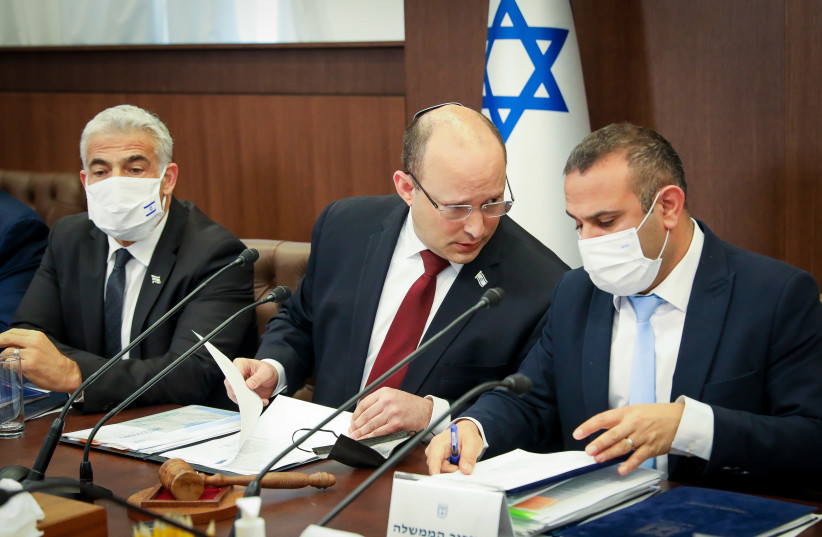“The State of Israel is a refuge for Jews in distress,” Prime Minister Naftali Bennett said Monday. “This is our mission. We will meet this sacred mission this time as well.”
“The consequences of the [Ukraine] war reach everywhere, including us,” he said at a session of the Ministerial Aliyah and Integration Committee. “We in the State of Israel have so far received many hundreds of refugees, some Jews, most of them not. Naturally, the State of Israel will focus on Jewish refugees.”
“The State of Israel has been established as a state that is the safest place in the world for Jews,” Bennett said. That is “at the core of our vocation, so of course we will focus on that.”
“We must make sure that those Jews who flee from places of danger are received here in the State of Israel in the best possible way: that they feel there is an open door and a warm home for them,” he said. “Our internal bureaucracy must not place obstacles [in their way]. We need to know how to do everything possible and cut bureaucracy to meet this historic task.
“All our resources for this historic opportunity need to be harnessed and led by Aliyah and Integration Minister Pnina Tamano-Shata, who is heading the efforts on the matter together with our fellow ministers in the government.”

Firstly, we should “reach out to Jews in distress, reach out to them on the ground and make it easier for them and consolidate all efforts among government offices, which are a bureaucracy under war,” Bennett said.
Secondly, he said, we should “absorb them here in the State of Israel in the best possible way... they will then call their families and say, ‘Come because it’s good here.’ And this from all aspects: housing, education, employment.
“This is our vocation. The State of Israel has done this many times in its history, and we will meet this sacred task this time as well,” he said.
"We didn't expect Bennett to participate, but he ran the cabinet even though Tamano Shata was supposed to run it" said a source that participated in the meeting.
A few senior officials who participated in the discussion said that Bennett was very "hands-on," and was giving the different ministries and organizations tough and difficult questions.
Bennett asked to see if the Jewish Agency's Global Center (its call center for issues of Aliyah) works well. He asked a Jewish Agency representative to call the Global Center and check the quality of the service.
Bennett criticized the Agency since it took a very long time to actually get through. The menu, according to a source at the meeting, was in English, Hebrew and only very far on - also in Ukrainian. He wasn't able to get through and was asked to leave a number. He then told the Jewish Agency officials that he expects them to immediately fix this situation.
Bennett also criticized the Agency after he found out that the Global Center isn't open for 24/7. He asked Yaakov Hagoel, Acting Chairman of the Jewish Agency, how it can be that there the Shlichim are only on the borders of Ukraine and not in the country. Hagoel responded that the Shlichim were instructed to leave by the Foreign Ministry.
"Immediately after the outbreak of the war, the Jewish Agency established the 'Global System' that would help save the Jews of Ukraine," the Agency stated.
"The Jewish Agency's emissaries and employees are located in central centers throughout Ukraine, its borders, neighboring countries and in Israel in order to absorb this wave of Jewish refugees and immediately assist anyone who wants to immigrate to Israel.
"On the day the war broke out, we opened an emergency center that works to address the Jews of Ukraine and their relatives in Israel, which accompanies the applicants with dedication. In the last week, about 15,000 inquiries have been processed at the center. The number of applicants is increasing day by day and we are preparing accordingly."
